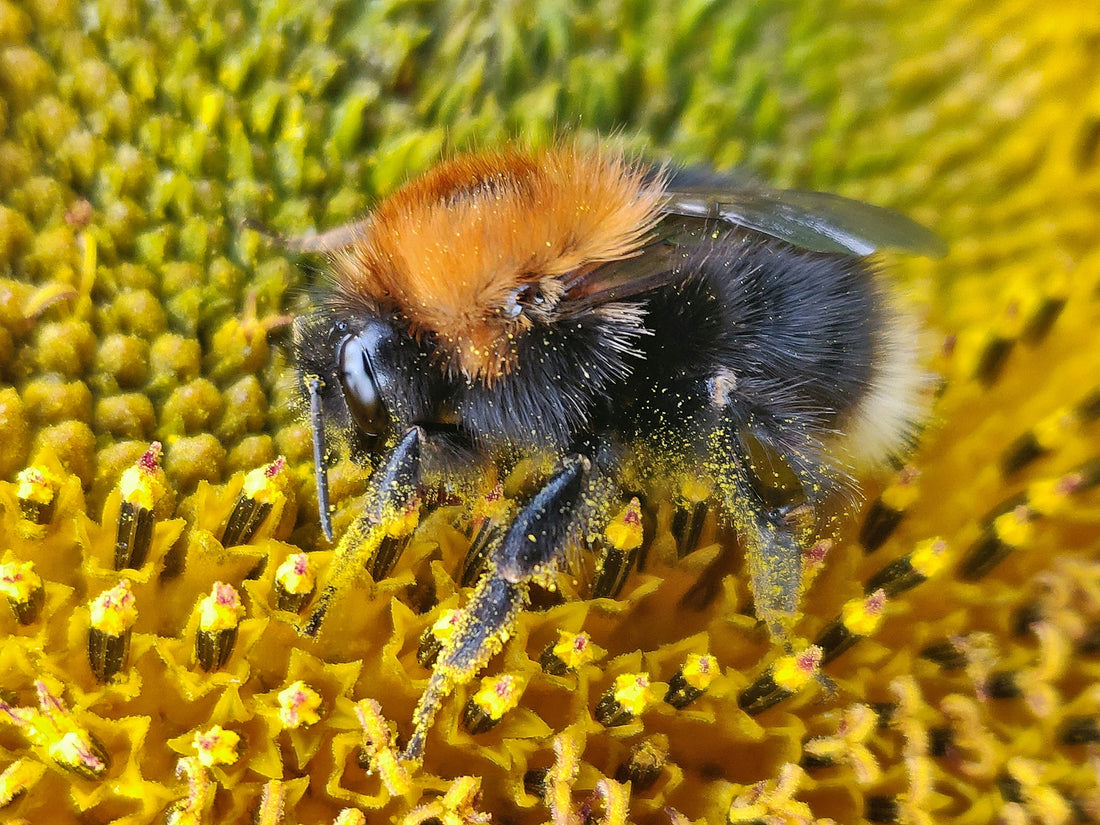Bee pollen might not be the first thing you think of when looking for a health booster, but it deserves a spot on your list. This golden substance is loaded with vitamins, minerals, proteins, and antioxidants that can do everything from improving your skin to giving you an energy boost.
But is it worth the hype and what’s the best way to consume it? Let’s break it all down in a way that makes sense.
Nutritional Composition of Bee Pollen
Bee pollen contains an impressive variety of nutrients, making it a valuable addition to a healthy diet. It is composed of:
● Protein (up to 35%): including essential amino acids
● Carbohydrates: providing natural energy
● Vitamins: B-complex, vitamin C, and vitamin E
● Minerals: iron, zinc, magnesium, and selenium
● Antioxidants: which help fight inflammation and slow ageing.
Unlike synthetic supplements, bee pollen delivers nutrients in their natural, highly absorbable form. That’s why so many people swear by it.
What Happens If You Take Bee Pollen Every Day?
Short answer? You might just feel amazing. Long answer? Here’s what regular consumption can do for you:
1. More Energy, Less Fatigue
Forget those mid-day crashes. Bee pollen is packed with carbohydrates, proteins, and B vitamins, which help keep your energy levels stable. If you’re constantly feeling drained, adding bee pollen to your diet could give you that natural boost.
2. Stronger Immune System
Getting sick all the time? Bee pollen has antimicrobial and anti-inflammatory properties that help strengthen your body’s defenses. Some studies suggest it even supports faster recovery from illnesses.
3. Healthier, More Radiant Skin
What Does Bee Pollen Do to Skin?
Bee pollen's vitamins, minerals, and antioxidants contribute to skin health by promoting cell regeneration and protecting against premature ageing. Topical applications can soothe irritations and enhance skin texture, while internal consumption provides nutrients that support skin vitality from within.
Bee pollen is loaded with skin-loving antioxidants and vitamins. It helps:
- Reduce inflammation (goodbye, acne)
- Protect against sun damage and pollution
- Support collagen production for firmer, younger-looking skin
Some people even mix it into face masks, but consuming it daily gives you that inside-out glow.
4. Better Digestion
Bee pollen contains natural enzymes that help break down food, making digestion smoother. It may also support gut health by reducing inflammation in the digestive tract.
5. Supports Heart Health
With its mix of antioxidants and anti-inflammatory compounds, bee pollen can help lower cholesterol levels and improve circulation. This means a happier heart and better overall health.
6. Helps Detox the Liver
Your liver is your body’s natural detoxifier, and bee pollen helps keep it functioning at its best. Studies suggest it can protect against liver damage and even promote liver cell regeneration.
What’s the Best Way to Consume Bee Pollen?
So, you’re sold on the benefits but how do you actually eat this stuff? The good news: it’s super easy to incorporate into your daily routine.
Here are a few ways to enjoy bee pollen:
● Sprinkle it over yoghurt, oatmeal, or salads.
● Blend it into smoothies or juices.
● Mix it with honey and spread it on toast.
● Stir into herbal teas or lemon water.
● Take it straight, just a spoonful a day with water.
How Much Should You Take?
Start with small doses (about ¼ to ½ teaspoons per day) and gradually increase to 1–2 teaspoons once your body adjusts. If you have pollen allergies, consult a doctor first to avoid any unwanted reactions.
What Are the Negative Side Effects of Bee Pollen?
For most people, bee pollen is safe, but there are a few things to keep in mind:
● Allergies: If you’re allergic to pollen or bee products, steer clear. It can cause anything from mild itching to serious reactions like swelling or difficulty breathing.
● Digestive Discomfort: Some people experience bloating or nausea when they first start taking bee pollen. Start with a small dose and see how your body reacts.
● Not for Pregnant Women: There isn’t enough research on bee pollen’s effects during pregnancy, so it’s better to play it safe and avoid it.
Which Is Better: Bee Pollen or Honey?
Both come from bees, and both have impressive health benefits, but they’re very different.
Rather than choosing one over the other, the best approach is to combine them. Together, they offer a complete nutritional boost. Honey’s natural sweetness enhances the flavour while delivering additional health benefits, making the perfect pairing for an everyday wellness routine.
Remember to store bee pollen in a cool, dry place to maintain its nutritional integrity.
Conclusion
Bee pollen is one of the most nutrient-dense foods you can add to your diet. Whether you want better skin, more energy, or stronger immunity, this tiny superfood delivers. Just make sure to introduce it slowly and be mindful of allergies.
So, is bee pollen worth the hype? Absolutely. Give it a try, and you might just be surprised at how much better you feel.
References
Healthline (2024). 10 Potential Health Benefits of Bee Pollen. Retrieved from https://www.healthline.com/health/bee-pollen
WebMD (2023). Bee Pollen Benefits and Side Effects. Retrieved from https://www.webmd.com/balance/bee-pollen-benefits-and-side-effects

